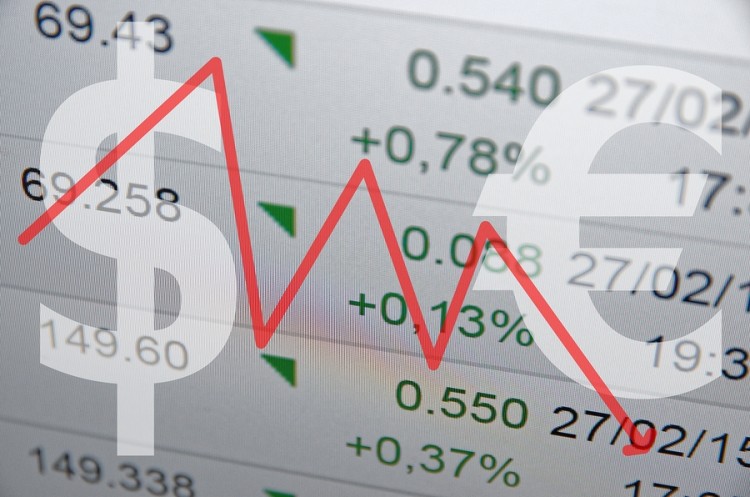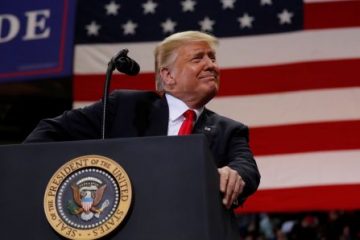Dollar Gains Second Day as Fed Rate Rise Odds Jump; Kiwi Slumps

(Bloomberg) —The dollar advanced for a second day as traders increased bets the Federal Reserve will raise interest rates this year and as a jump in oil prices Monday helped push up Treasury yields.
The U.S. currency strengthened all of its 16 major counterparts after the probability the Fed will tighten this year climbed to 68 percent, the most since June. The greenback also rose as the second U.S. presidential debate Sunday added to speculation Democratic nominee Hillary Clinton will prevail over Republican Party candidate Donald Trump. The New Zealand dollar dropped for a seventh day, the longest losing streak since July 2015, after Reserve Bank of New Zealand Assistant Governor John McDermott said the central bank still expects to cut interest rates to revive inflation.
“We’ve seen implied probabilities of a fed hike moving higher and the dollar is finally catching a drift,” said Jane Foley, a senior currency strategist at Rabobank International in London. Still, “There doesn’t appear to be too much confidence in the Fed being able to accelerate the pace of interest rate hikes much. The market is not confident of a lot of tightening in 2017, so the scope for a dollar upside is comparably fairly moderate.”
The Bloomberg Dollar Spot Index, which tracks the U.S. currency against 10 major peers, rose 0.5 percent as of 10:12 a.m. in New York after gaining 0.1 percent Monday. The dollar climbed 0.2 percent to 103.82 yen and strengthened 0.6 percent to $1.1074 per euro.
Oil Agreement
Saudi Arabia and Russia, the world’s two largest crude-oil producers, said they’re ready to cooperate to limit output, helping send prices to a one-year high in London. Oil has surged about 15 percent in the past two weeks, and this will add to inflationary pressure in the first quarter of 2017, according to Macquarie Bank Ltd.
“Every central bank will be affected and will have to rewrite their forecasts and their guidance, but a stronger dollar will probably emerge from the ensuing volatility — except against the Canadian dollar — as U.S. Treasury yields keep rising,” Macquarie Bank analysts including Nizam Idris, Singapore-based head of foreign-exchange and fixed-income strategy, wrote in a note to clients. “A more-hawkish Fed should trump less-dovish central bankers elsewhere in terms of FX impact.”
Slow Inflation
The U.S. economy probably isn’t at full employment and inflation remains below target, Chicago Fed President Charles Evans said, according to the text of a speech delivered in Sydney, as he argued for keeping interest rates low until core inflation moves higher.
The kiwi dollar tumbled 1.2 percent to 70.51 U.S. cents, while the Aussie dropped 0.9 percent to 75.38 U.S. cents.
“We cannot rule out a cut in November and continued easing at this stage,” said Matt Simpson, a senior market analyst at ThinkMarkets in Singapore, referring to the RBNZ’s next policy move.







No Comment